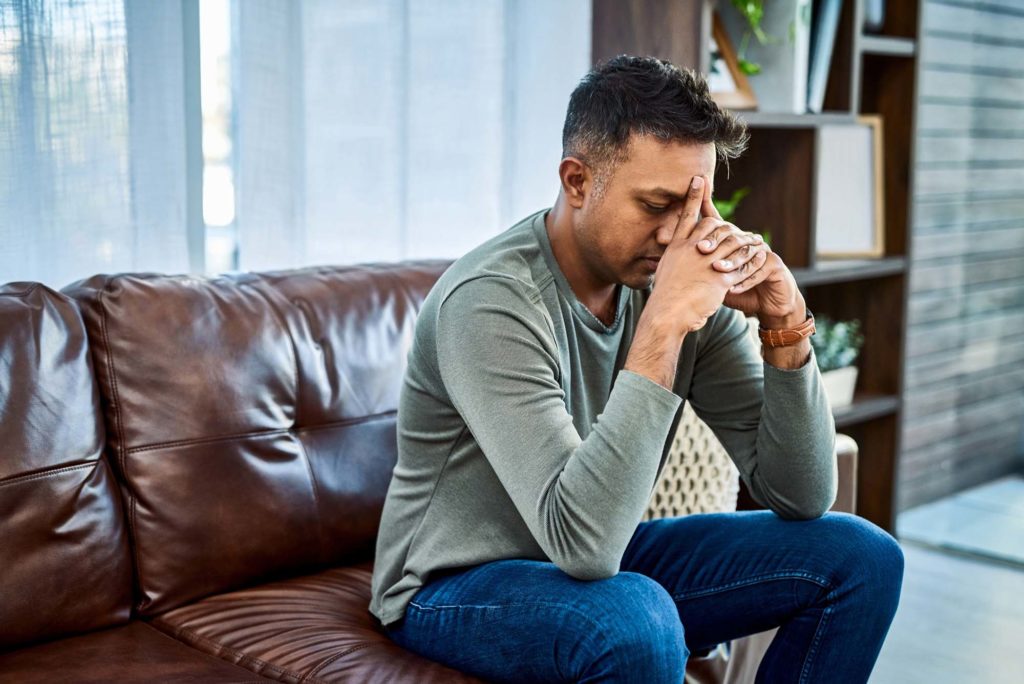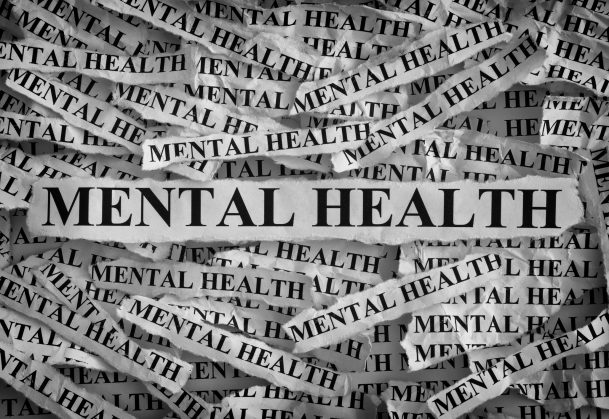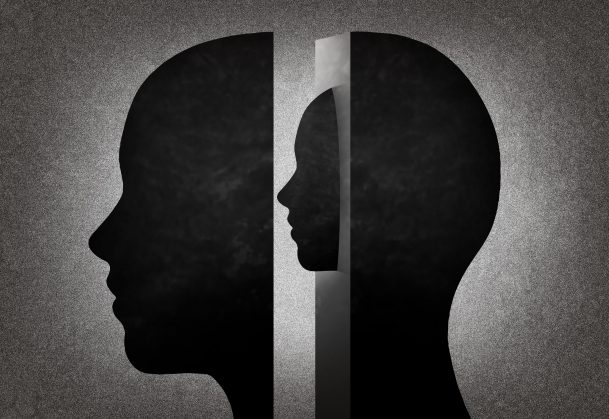APS Spotlight
How Owning a Gun Raises Anxiety
APS webinar showcases psychological research on firearms in America

As the COVID-19 pandemic raged in 2020, gun sales in the United States soared to their highest levels in at least a decade. But purchasers weren’t looking to spend the nationwide lockdown hunting or adding to their gun collections. The primary reason driving one in five American households to buy a gun was security.
Although people in most developed countries view guns as dangerous, Americans largely view guns as a tool to protect themselves in a world they perceive as dangerous, research shows. But ironically, having access to a gun may leave owners feeling more anxious, according to research by social psychologist Nick Buttrick of the University of Wisconsin–Madison.
Buttrick was among four panelists in a Sept. 20 APS webinar, Science for Society: Gun Violence and Anxiety in the United States. The webinar covered a variety of research and insights on gun ownership and attitudes.
If you were unable to attend or wish to watch again, you can now view a recording of the program.
Guns and identity
In a recent Pew Research Center survey, only a third of gun owners cited hunting or sports shooting as a driving reason for possessing a firearm. Nearly 75% of those respondents cited protection as their main reason for owning a gun, compared with just 67% who cited that reason in a similar 2017 survey. More than 80% said they feel safer with a gun in the home than without one.
Statistics show that firearms in the home are actually a danger, not a safeguard. A gun in the household doubles the chance of a murder and triples the likelihood of a suicide, Buttrick said. Yet gun owners appear to embrace their weapons “as a coping mechanism, helping to deal with the anxieties that come from fundamentally believing the world is dangerous and society doesn’t care about you.”
Buttrick shared some yet-to-be-published research showing the psychological drawbacks of this coping mechanism. In an experiment during the pandemic shutdowns, his lab sent a series of text messages to gun owners, asking them how much meaning and control they felt over their lives. When the texts prompted gun owners to think about their guns, the recipients reported finding more meaning in their lives. But they also showed more hypervigilance and anxiety when their guns were accessible versus when they were not (Buttrick et al., under review).
“Actually having [the gun] seems to be associated with appraisals of the situation as being more dangerous,” he said. “So if we’re not taking this psychology into account—the ways in which people are using guns to deal with stresses, with their psychological fundamental needs—we may be missing really important barriers to help people think about what guns can and can’t do in their everyday lives.”
Read all of the articles from the November/December Observer.
Guns and youth
Amanda B. Nickerson, a school psychology professor at the University at Buffalo, The State University of New York, shared her research on the developmental pathways toward gun violence. She and her colleagues found that prenatal exposure to drugs and alcohol predicted aggression in kindergarten, which then predicted the gun-violence attitude of aggressive response to shame. Both victimization and perception of bullying also predicted these gun-violence attitudes among adolescents.
In a policy brief for the Rockefeller Institute of Government, Nickerson and Columbia University associate professor of health and behavior studies Sonali Rajan found that the burden of firearm violence falls disproportionally on people of color, particularly Black men between ages 15 and 24 in urban settings. Black children between ages 5 and 17 were exposed to violence in their neighborhoods 4.44 times more frequently than white children prior to the COVID-19 pandemic, and these stark disparities have become even more pronounced since (Nickerson & Rajan, 2022).
Nickerson also shared several factors that can buffer youth from engaging in gun violence, including family, school, and peer support; concern for others; and future aspirations.
Preventing deaths
Nickerson has also studied the psychological effects of school lockdown drills, which are becoming common amid a string of infamous mass shootings over the last decade. Critics of those exercises warn that they can traumatize students. But research shows that those drills—locking doors, turning out lights, staying silent and out of view—do not appear to raise anxiety levels for children and indeed save lives (Shildkraut & Nickerson, 2022).
“In one study, we found that there was even lower anxiety after students participated in the drill,” Nickerson said.
Chris Knoepke, a University of Colorado scholar and clinical social worker, noted that more than 60% of gun deaths in the United States are suicides. When conducting suicide-risk assessments, doctors tend to ask patients if they have thoughts of death but often don’t mention firearms specifically, he explained. However, he cited several promising programs, including one he helped create, that limit individuals’ ability to harm themselves when they are in crisis. Clinicians can help clients develop a plan to limit their access to firearms or other lethal weapons, such as storing them in a lockbox or giving them to a trusted family member, he said (Betz et al., 2019).
Tracey Scherr, a Wisconsin-based school psychologist and violence-prevention advocate, discussed her use of research data in her efforts to generate more public safety measures that prevent gun-related deaths and injuries. She noted that there’s a tendency among the public to blame mental illness as the cause of gun violence.
“We know that mental illness is actually more connected to being victimized by gun violence than it is to perpetrating gun violence,” Scherr said.
Related content we think you’ll enjoy
-

The Bad-Behavior Blend
“The one gene, one disease idea is a thing of the past.” Scientists aren’t simply trying to identify people who are innately predisposed to incivility, immorality, or lawlessness. They’re examining how parenting, education, and other life experiences trigger those biological leanings. Visit Page
-

The Impact of Mental Illness Stigma on Seeking and Participating in Mental Health Care
Read the Full Text (PDF, HTML) Mental illness has wide-reaching effects on people’s education, employment, physical health, and relationships. Although many effective mental health interventions are available, people often do not seek out the care Visit Page
-

Myth: People With Mental Illness Are More Prone to Violence
Instructors should be prepared to listen for —and challenge — belief perseverance, and can use this myth to highlight how automatic and difficult belief perseverance can be to overcome. Visit Page
Feedback on this article? Email apsobserver@psychologicalscience.org or login to comment. Interested in writing for us? Read our contributor guidelines.
References
Betz, M. E., Knoepke, C. E., Siry, B., Clement, A., Azrael, D., Ernestus, S., & Matlock, D. D. (2019). “Lock to Live”: Development of a firearm storage decision aid to enhance lethal means counseling and prevent suicide. Injury Prevention, 25, i18–i24. https://doi.org/10.1136/injuryprev-2018-042944
Buttrick, N. R., Heintzelman, S. J., Medina-Devilliers, S., & Wang, X. (under review). The world through gun sights: Salient weapons may incompletely help owners deal with psychological threat.
Nickerson, A. B., & Rajan, S. (2022). The effects of firearms violence on children: Implications for its prevention in schools and our communities. [Policy brief]. Rockefeller Institute of Government. https://rockinst.org/issue-area/the-effects-of-firearm-violence-on-children
Nickerson, A. B., Shisler, S. M., Eiden, R. D., Ostrov, J. M., Schuetze, P., Godleski, S. A., & Delmerico, A. M. (2020). A longitudinal study of gun violence attitudes: Role of childhood aggression and exposure to violence, and early adolescent bullying perpetration and victimization. Journal of School Violence, 19, 62–76. https://doi.org/10.1080/15388220.2019.1703716
Schildkraut, J. & Nickerson, A. B. (2022). Lockdown drills: Connecting research and best practices for school administrators, teachers, and parents. MIT Press.





Comments
Muhlenberg College
Retired - 5 Years
Member Since 02/16/2021
Is there evidence of a *causal* connection between gun ownership and anxiety? Is it possible that anxiety causes gun ownership and accessibility? Please do better here. Better science. Better reporting.
APS regularly opens certain online articles for discussion on our website. Effective February 2021, you must be a logged-in APS member to post comments. By posting a comment, you agree to our Community Guidelines and the display of your profile information, including your name and affiliation. Any opinions, findings, conclusions, or recommendations present in article comments are those of the writers and do not necessarily reflect the views of APS or the article’s author. For more information, please see our Community Guidelines.
Please login with your APS account to comment.